The security situation in the Indo Pacific is evolving rapidly. The growing threats from DPRK and China have compelled the US, Japan and ROK to come together in comprehensive trilateral format with security as its key pillar. On 18th Aug 2023, a trilateral summit between the US President Joe Biden, Japanese Prime Minister Mr Fumio Kishida and South Korea’s President Mr Yoon Suk Yeol was held at the historic Camp David resort to herald comprehensive trilateral cooperation between the three countries. A joint declaration on ‘Camp David Spirit’ was adopted along with a document outlining the “Principles” of cooperation and a document on “consultations”. The three leaders have hailed the beginning of a ‘new era’ of cooperation amongst themselves. The trilateral is not formally an alliance but it has been described by the leaders as ‘security cooperation’. It has distinct features of a security alliance. The emergence of US-Japan-ROK trilateral is bound to have regional and global repercussions.
Japan and ROK, which have troubled relationship rooted in history going back to the times of Japanese occupation of Korea. The deep rooted antagonism has so far prevented the two from realizing the full potential of bilateral ties. However, the urgency of the growing security threats from China and DPRK has made them to downplay the past and to mend fences. They have held summit level bilateral meetings in 2022 and 2023.
The US, for whom both Korea and Japan are “indispensable allies”, has been discomforted at the persisting tension between the two. It has played a key role in bringing the two to come together. President Biden has been meeting the two leaders at the sidelines of NATO meetings and G7 meetings. He publicly praised the ‘political courage’ of the two leaders to come forward in developing the trilateral relationship.
The three countries have decided to set up an elaborate institutional mechanism for taking forward the trilateral cooperation: e.g. annual leaders’ summits; annual trilateral meetings between national security advisors, the foreign, defence and finance minsters. They have agreed to hold high-level multi-domain military exercises; strengthen ballistic missile defense cooperation and have real time information sharing on North Korea’s nuclear missile activity. Communication hotlines will be set up to facilitate close contact amongst them. They will have joint responses to emerging security crisis. Concerned about DPRK’s disruptive cyber activities, the three countries have decided to set up a joint working group to deal with cyber threats from North Korea. Sensitive to economic coercion, they have decided to set up an early warning system to deal with supply chain disruptions, etc. The three countries have also agreed to strengthen cooperation in AI, quantum, bio, energy and other cutting-edge technologies. Expanding the scopes of cooperation, the three countries have agreed to have a trilateral dialogue on Indo-Pacific and make an outreach to the ASEAN and the Pacific Island states.
Rationale of the Trilateral
The emerging geopolitical imperatives have brought the three countries together. The joint statement notes that the “new era of trilateral partnership” comes “at a hinge point of history, when geopolitical competition, the climate crisis, Russia’s war of aggression against Ukraine, and nuclear provocations test us. This is a moment that requires unity and coordinated action from true partners, and it is a moment we intend to meet, together.”
DPRK’s nuclear and missile threats and China’s unilateral maritime claims in South China Sea and East China Sea are the obvious reasons for the three countries to come together to deal with the growing threats in an united, coordinated fashion. Singly, they cannot handle the China threat. The “Spirit of Camp David” document describes Chinese assertions and claims in South China Sea as “dangerous and aggressive” and expresses the resolve to “strongly oppose any unilateral attempts to change the status quo in the waters of the Indo-Pacific.” The joint statement specifically mentioned Taiwan. It describes “peace and stability across the Taiwan Strait as an indispensable element of security and prosperity in the international community.” Not surprisingly, this has riled China greatly.
But it is really the DPRK which is seen as the most pressing threat. The three countries called for “the complete denuclearization of the Democratic People’s Republic of Korea (DPRK) in accordance with relevant UNSC resolutions and urged the DPRK to abandon its nuclear and ballistic missile programmes.” They condemned “the DPRK’s unprecedented number of ballistic missile launches, including multiple intercontinental ballistic missile (ICBM) launches and conventional military actions that pose a grave threat to peace and security on the Korean Peninsula and beyond.” They also expressed concern about “the DPRK’s illicit cyber activities that fund its unlawful WMD and ballistic missile programmes.”
Prime Minster Kishida gave a succinct explanation of the rationale behind the trilateral meeting: Mentioning Russia, China & DPRK at the same time, he said at the post-meeting press conference:-
“At the moment, the free and open international order, based on the rule of law, is in crisis. Due to Russia’s aggression of Ukraine, the international order is shaken from its foundation. The unilateral attempt to change the status quo by force in the East and South China Seas are continuing. In addition, the nuclear and missile threat of North Korea is only becoming ever larger. Under such circumstances, to make our trilateral strategic collaboration blossom and bloom is only logical and almost inevitable and is required in this era.”
For South Korea, the threat from DPRK is uppermost. President Yoon shared his understanding of the need to bring trilateral cooperation to an “unprecedented” level. Referring to the threat from North Korea’s “nuclear and missile provocations” he said,
“Any provocations or attacks against any one of our three countries will trigger a decision-making process of this trilateral framework, and our solidarity will become even stronger and harder.”
This indicates that ROK sees the trilateral arrangement akin to a security alliance.
Biden placed the trilateral summit in a wider context. He brought in Taiwan into the equation when he said;
“And, critically…, we’ve all committed to swiftly consult with each other in response to threats to any one of our countries from whatever source it occurs. That means we’ll have a hotline to share information and coordinate our responses whenever there is a crisis in the region or affecting any one of our countries. And today, we’ve reaffirmed our shared commitment to maintaining peace and stability in the Taiwan Strait and … addressing economic coercion.”
China’s and North Korea’s Reactions
As could be expected, China and North Korea have reacted vehemently to the trilateral. Lashing out at the three countries, a China foreign office spokesperson said,
“Attempts to stoke a new Cold War in the region will be met by firm rejection of regional countries and peoples. Those who seek to establish and maintain hegemony in the region are doomed to fail. We urge relevant countries not to go against the trend of the times, stop replicating the bloc confrontation elsewhere in this region, and stop pursuing selfish gains at the expense of other countries’ strategic and security interests and the wellbeing of people in Asia-Pacific.”
He gave a glimpse of how China views the developments in the region. Criticizing the US for fomenting “divisions and confrontation” in the Asia Pacific, he said,
“We see two trajectories in the Asia-Pacific today. One features efforts to advance solidarity, cooperation and economic integration. The Regional Comprehensive Economic Partnership (RCEP) and the Comprehensive and Progressive Agreement for Trans-Pacific Partnership (CPTPP) are two examples. The other features attempts to stoke division and confrontation and revive the Cold War mentality. Examples include exclusionary groupings such as AUKUS, the US-Japan-ROK partnership and Quad, to name just a few. Regrettably, the US has been missing in the former and all examples in the latter are centered around Washington DC. He went on to say,”
North Korea’s reaction to the trilateral was even harsher. DPRK’s state entity the Korean Central News Agency (KCNA) warned that “if the agreements fabricated at the Camp David Resort are additionally put in the practice in the war drill … the possibility of outbreak of the thermonuclear war on the Korean peninsula will become more realistic”.
Assessment
The three countries have had trilateral cooperation in the past. But the Camp David meeting has raised the trilateral cooperation to a “new height”. It has the features of a security alliance. The ambit of existing cooperation has been widened. New institutional mechanisms have been put in place. Consultation, coordination, information sharing and joint response to the emerging crises are envisaged. Indo-Pacific has been induced in the scope of trilateral cooperation: Taiwan Straits falls within the scope of their consultations. As leading economies and global technological powers, they have also agreed to address their supply chains vulnerability arising out of economic coercion and other geopolitical factors. Clearly, they have China in mind.
In South Korea, there is considerable opposition to President Yoon’s efforts to normalize relations with Japan. Given the deep rooted issues which bedevil Japan-South Korea relations, it remains to be seen how the trilateral cooperation between the three countries develops and holds.
The emergence of the security oriented trilateral is likely to generate more, not less, tension in the future. The trilateral can be expected to evoke strong responses both from China and DPRK. Even Russia may join in. A Global Time article said that the trilateral security agreement was directly aimed at China and North Korea, heralding a “new cold war” against China and bring how tension and instability in the region. It is an attempt to prevent China’s trade with its neighbours. It contrasted US-Japan-ROK trilateral with the 15th BRICS summit in Johannesburg which focussed on building and open world economy.
The Indo-Pacific is not just about the Quad. AUKUS and the US-Japan-ROK trilateral have added new layers to the regional dynamics. India does not regard the Quad as a security alliance and is not a part of other groupings which have distinct, hard core security elements built-in to them. ASEAN countries would also be uncomfortable with the emerging security groupings.
While India would be sympathetic to the security concerns of the three countries (Taiwan, DPRK, China), it cannot afford to get mired in ever widening circle of conflicts and tensions. Despite its growing closeness with US, Japan, Australia, ROK, it will have to deal with its own security issues by itself as they have distinct flavour of their own. Continental dimension of India’s security is as pressing as the maritime dimension. India will have to assess the impact of latest developments closely on its own security.
(The paper is the author’s individual scholastic articulation. The author certifies that the article/paper is original in content, unpublished and it has not been submitted for publication/web upload elsewhere, and that the facts and figures quoted are duly referenced, as needed, and are believed to be correct). (The paper does not necessarily represent the organisational stance... More >>
Image Source: https://www.courthousenews.com/wp-content/uploads/2023/08/joe-biden-fumio-kishida-yoon-suk-yeol-1880x1256.jpg

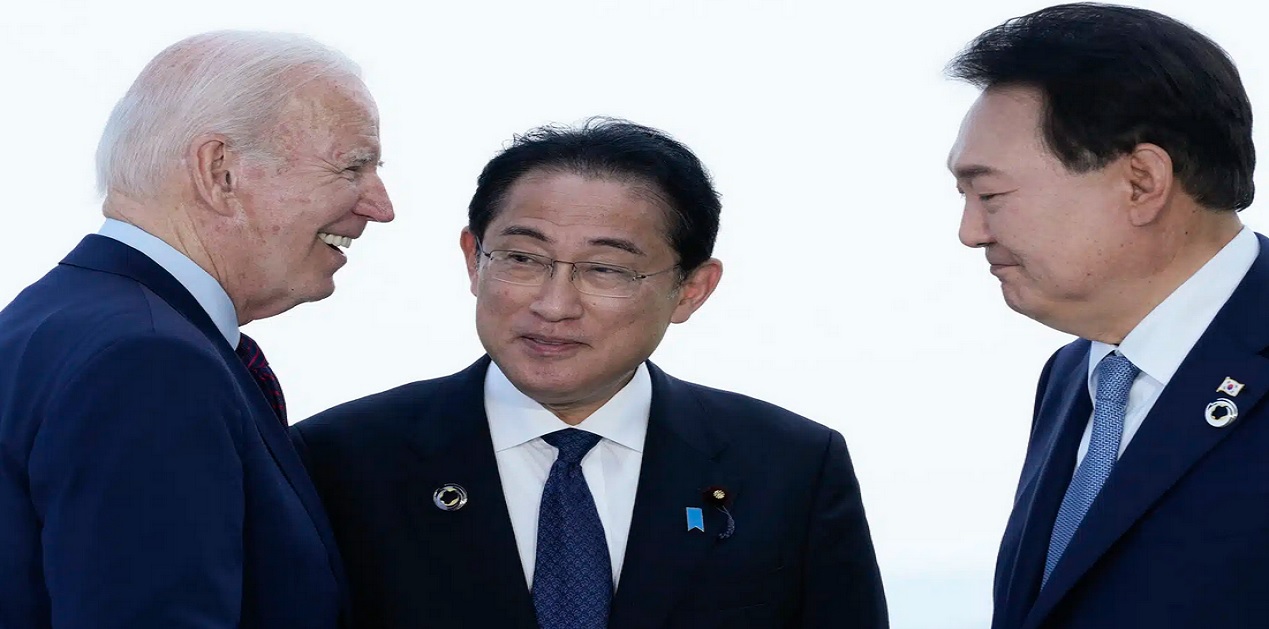
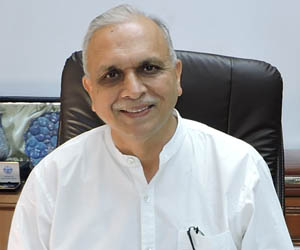
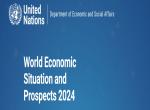
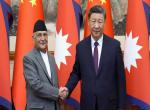





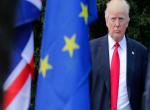
Post new comment